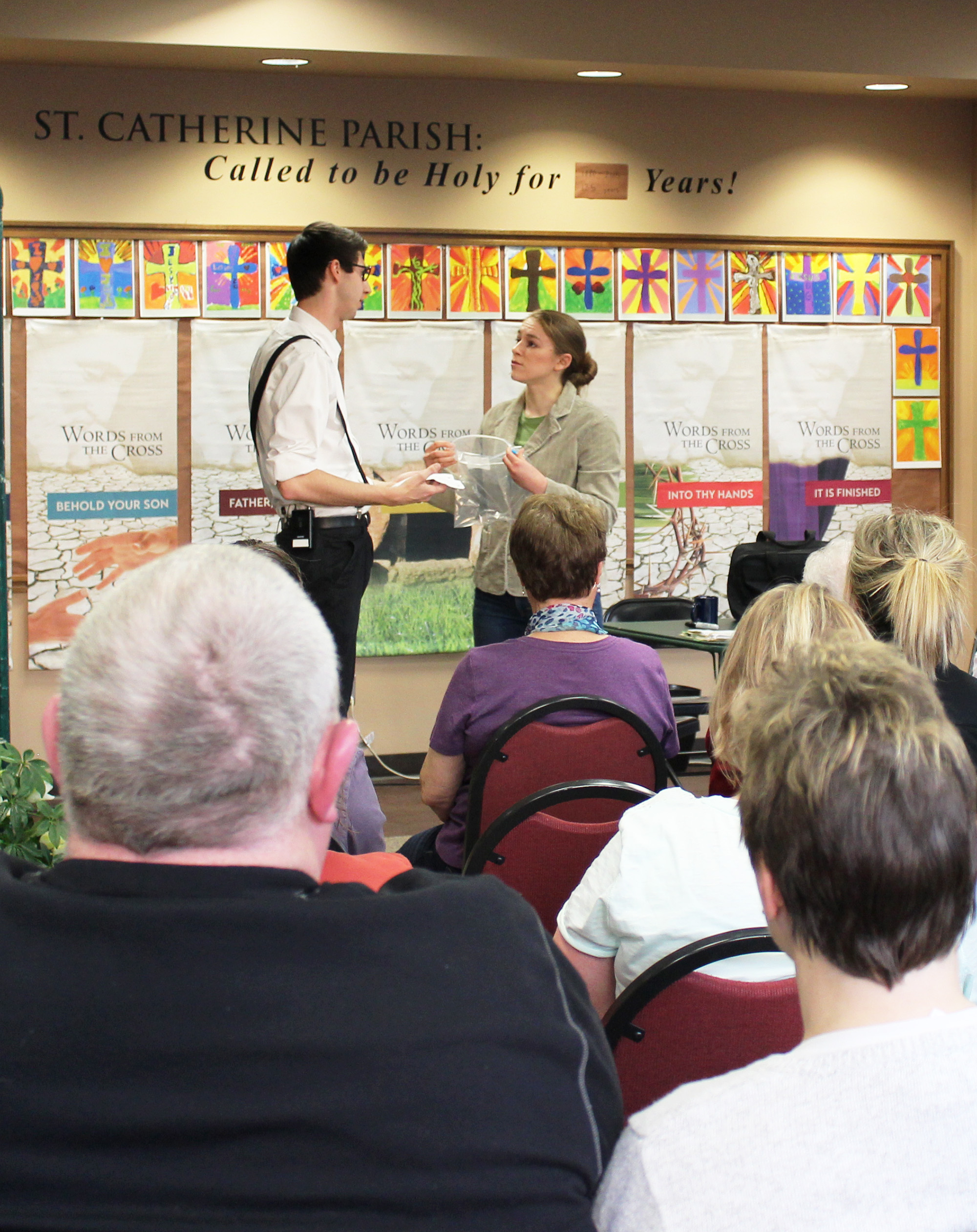
A unique four-person theatrical performance last week in St. Catherine Church illustrated the topic of forced labor and commercial sex in Minnesota.
A panel discussion afterward offered ways community residents could end the modern-day slavery.
More than 50 people attended the public performance of “Bottom,” by Twin Cities’ Blank Slate Theatre on Thursday, April 14, in Luverne.
Director Adam Arnold said the group has performed the play throughout the state for three years. However, Thursday’s performance was the first time the group traveled to southwest Minnesota.
“When we get angry about something, we write a play about it,” he said.
The event was hosted by the local social ministry committee of St. Catherine and St. Mary through the efforts of the lobbying group, Joint Religious Legislative Coalition, headquartered in Minneapolis.
Human trafficking is one of several focuses for the theatre group, which partnered with the Interfaith Children’s Advocacy Network, an arm of the JRLC.
“We remind people this is a Minnesota problem. It is not just in the big cities,” said JRLC’s statewide organizer Jennifer Nelson.
The event brought local and regional officials to the discussion.
Sheriff Evan Verbrugge participated on the panel with Nelson. Southwest MN Regional Navigator Juli Fast and Southwest Crisis Center’s Jen Lindsey were also on the panel.
Verbrugge said the Rock County office has had no documented or reported cases of human trafficking.
“It’s not to say it’s not going on,” he told audience members.
The local office, however, does assist surrounding counties with online sex trafficking advertising primarily through Backpages, a classified advertising website.
Verbrugge was questioned as to why trafficking organizers are not caught and prosecuted, ending the trafficking problem. He said it is hard to catch trafficking organizers because they often mask themselves as escort services or another legitimate business.
Without sufficient proof a crime has been committed, a conviction is often out of reach of law enforcement.
Nelson suggested audience members focus on the victims rather than the perpetrators.
“It’s not your job to fix this,” she said. “Don’t be paralyzed because you can’t solve it.”
The play also brought a face to trafficking victims who are boys or girls typically between the ages of 11 and 14, often people of color in single-parent homes.
Victims also tend to have a low self-esteem, which makes them susceptible to the feeling of belonging and self-worth that trafficking often fills for them.
Five years ago Minnesota implemented the Safe Harbor Law through the Minnesota Department of Health. Navigators like Fast bridge connections for sexually exploited youth through regional experts, services and programming in support of a healthier lifestyle.
However, inadequate funding is keeping the Safe Harbor program from serving more youth and more communities.
Navigator Fast serves the 17 counties that include Rock County. She said knowing what to do and who to contact when someone needs help is key to being a part of the solution. Her office will also connect organizations with speakers and more information on how to help.
Fast is housed with the Southwest Crisis Center in Worthington.
“If we don’t intend to be a part of the solution, you’re part of the problem,” she said.
All panel members agreed: People are often victims before being caught in human trafficking trade.


